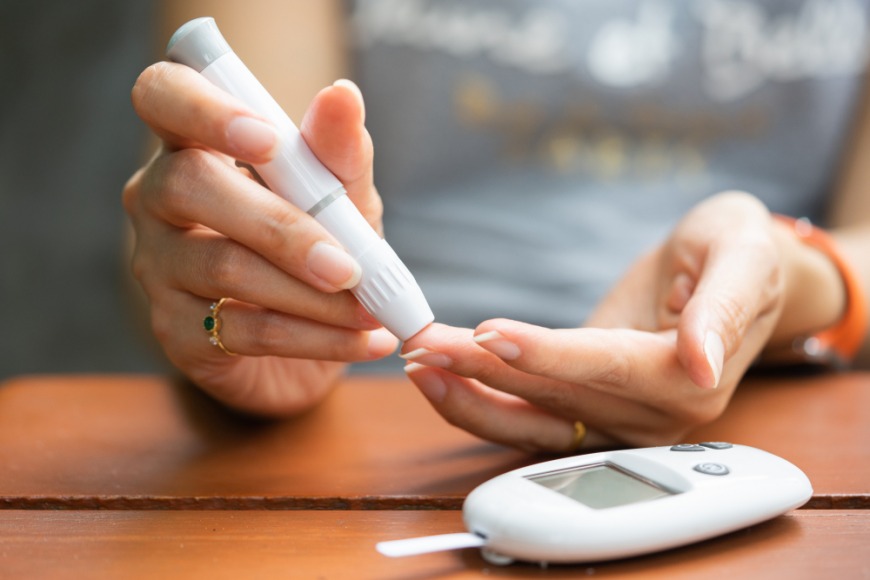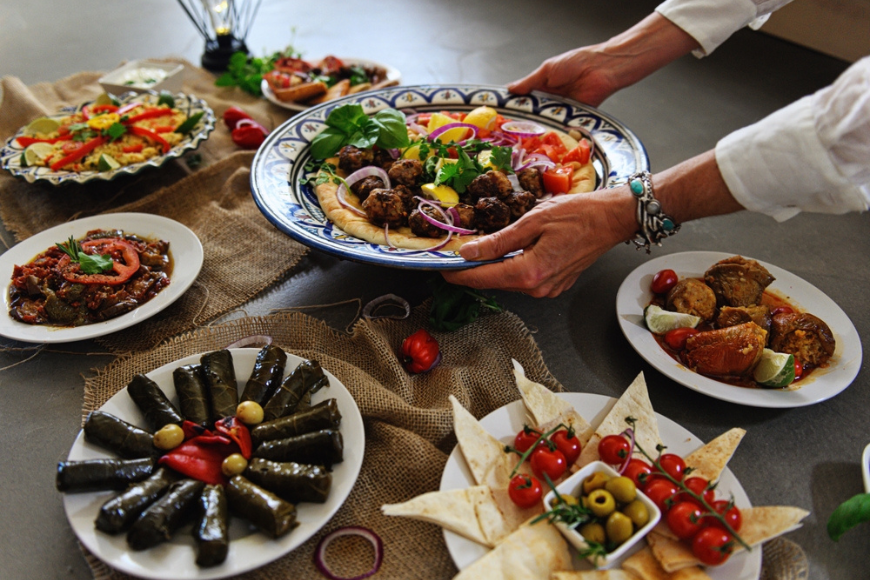Expert advice for a healthy Ramadan 2022 from doctors at Mediclinic hospital.

From April 2022, Muslims around the world began observing our third Ramadan since Covid-19 began.
While this year's Holy Month in the UAE is a lot better thanks to the country's nationwide vaccine drive, falling infection rates, and lesser restrictions, it's still important to stay cautious and healthy.
Dr. Naheed Riaz, GP at Mediclinic Al Qusais, shared her top health tips for a healthy Ramadan fasting period during Covid-19.
What is Ramadan?
Ramadan is the ninth month of the Islamic calendar. Muslims all around the world observe fasting from dawn till dusk for 30 days, and engage in worship throughout this month.
The main philosophy behind fasting during the entire month is for Muslims to abstain from worldly desires. The word “Ramadan” comes from Arabic words “Ramidha” or “Ar-Ramad” which translate to “scorching heat” that alludes to the burning of the sins of Muslims.
The month of Ramadan occurs based on moon sightings and hence Ramadan does not occur in the same month every year. This year, the month of Ramadan will span the months of April and May according to the Gregorian calendar.

What does science say about Ramadan fasting?
The scientific perspective of fasting includes:
1. Improves immune system
When a person fasts, their old white blood cells are recycled which help in making the immune system healthier and improved.
2. Suppression of Appetite
As we fast for a number of weeks, our stomach size reduces which is why we often need less amount of food in order to fill ourselves up when we break our fasts. Additionally, thyroid production increases in our bodies which further increases our metabolism.
3. Detoxification
Fasting helps the body in detoxification and cleansing the body of toxins and carcinogens. Fasting also helps in improving organ functions and metabolism whilst also improving blood circulation and the digestive system.
4. Lose weight
The process of fasting helps the body burn stored fat in order to get through the day, which leads to noticeable reduction in weight.
5. Lowered blood pressure
The overall salt consumption coupled with loss of salt via urine leads to a low blood pressure.

6. Better cardiovascular function
Fasting can help improve your heart’s health, it can decrease cholesterol, improve muscle performance, and improve blood vessel growth as well.
7. Reduced blood sugar problems
When a person is fasting, their body’s glucose levels become stable which can help prevent the onset of conditions like Type 2 Diabetes.
8. Anti-ageing benefits
Evidence also suggests that fasting can help slow the ageing process, and keep one younger and fitter for much longer. Fasting can help restore tissues and kill off unnecessary cells, which helps in the production of collagen, known for promoting a healthier and more radiant skin.
9. Improved mental health
Along with physical health benefits, fasting also helps our mental health. Fasting has known benefits for strengthening the mind, sharpen focus and provide mental clarity, which are all contributed to by reduced calorie, sugar, and salt consumption.
10. Healthier brain and cognitive function
During a period of fasting, the blood of a fasting person has more endorphins which help give a feeling of good overall mental health and well-being. The general effects of fasting on the brain are akin to the effects of physical exercise.
Diabetes and Ramadan during Covid-19
Diabetics may have a high risk of complications when fasting during Ramadan, especially for the following cases:
- Type 1 diabetes’ patients
- Type 2 diabetes with poor control
- Recent history of severe low blood sugar (hypoglycemia), or ketoacidosis
- Diabetic neuropathy patients
- Diabetics who are pregnant
SEE ALSO: First-of-its-Kind Diabetes Care Programme Opens in Dubai

However, it is safe to fast in Ramadan in the following cases:
- If one has a well-controlled Type 2 diabetes
- If one monitors blood sugar level and follows proper medication
Tips for a Healthy Ramadan during Covid-19:
1. Get sufficient rest and sleep
We should keep a target of 8 hours of sleep every day to sustain enough energy levels to get through the day.
2. Staying hydrated when not fasting
The general recommendation for water consumption outside of fasting hours is at least 2 litres of water, one or two glasses at a time. Optimum hydration can also be achieved by increasing general fluid intake in the form of soups, and fruits and vegetables rich in water like cucumbers and watermelons.
3. Eat healthy and nutritious meals
We can swap our sugary drinks and foods served at iftar for more healthy choices like unprocessed foods, fruits, vegetables and, carbohydrates like rice, bread and whole grains that will keep us fuller for longer. Excess salt should also be avoided by being mindful of how much salty food we consume outside of fasting hours, like nuts and popcorns.
Additionally, we can opt for high-protein foods during suhoor, like eggs, chicken, oats, and almonds. These will help keep us fuller throughout the day, and will also help build lean muscle when combined with exercise.
At iftar, we can opt for foods high in omega 3 fats from foods like fish, low-fat yogurt, steaks, and chicken breast pieces. Extra virgin olive oil is also a healthy option for cooking or using as a dressing.

4. Get more work done in the morning
One can achieve productivity and complete tasks that require mental energy and focus during the morning as one will have more energy during the first half of the day.
5. Exercise regularly every day
It is expected to feel sluggish and tired while fasting, but not exercising for a full month is not healthy, considering that most of one’s consumption will take place at night. It is also recommended to wait a few hours after breaking one’s fast at dawn before deciding to work out.
For more information call 800 1999 or download the MyMediclinic24x7 app.
Authored by Dr. Naheed Riaz – GP































































































![We Tried [u]bk's Lively Garden Brunch at Mövenpick JLT Dubai We Tried [u]bk's Lively Garden Brunch at Mövenpick JLT Dubai](https://cdnexpatwomanfood.expatwoman.com/s3fs-public/urban%20bar%20and%20kitchen%20brunch%20main.png)









































